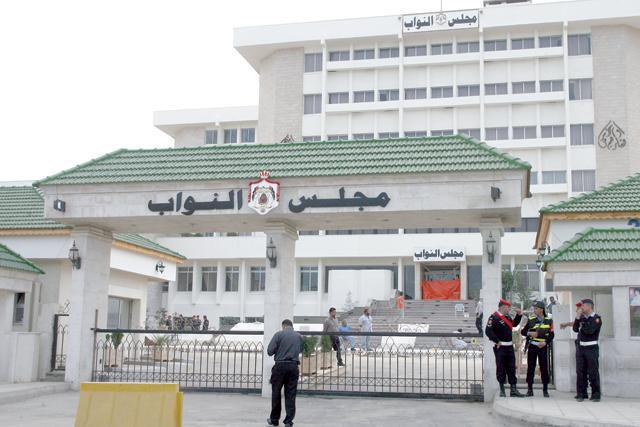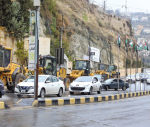You are here
Experts urge new lawmakers to discard ‘outdated formulas’
By Bahaa Al Deen Al Nawas - Nov 12,2020 - Last updated at Nov 12,2020
AMMAN — The results of the 2020 Lower House elections, which came out Wednesday, drew mixed reactions from political and economic analysts.
The voter turnout stands at 29.9 per cent, with around 1.3 million casting their votes out of 4.64 million eligible voters, which Economist Husam Ayesh said means the new Lower House is the product of the choices of a third the voters, and is going to represent the other two-thirds and those who are not eligible yet to vote.
“The new House comes at a time of big changes due to the coronavirus pandemic, and thus the elected members must think of new policies and provide new input in regard to facing the economic and social repercussions of the coronavirus crisis,” Ayesh said in a phone interview on Wednesday.
“However, I have not seen economic reform slogans raised during the election campaigns, and so it cannot be known whether the economic scene will be run using the same outdated tools prior to the virus crisis or whether a new formula adapted to the new reality imposed by the virus will be utilised,” he added.
There needs to be focus on social protection, the budget and its spending, and the accumulating debt, in addition to the high unemployment rate that Ayesh said is expected to double if the situation remains the same.
“The current economic tools cannot fix people’s problems, find opportunities to young people and provide jobs,” he said, concluding that these issues need to be a priority for the new House.
“The low voter turnout is understandable in light of the hike in the number of COVID-19 infections and deaths in the Kingdom,” professor of political science Jamal Shalabi told The Jordan Times over the phone on Wednesday.
“The results seem to include new names and new faces, and I believe we are heading towards a parliament that is new in both nature and structure, which could deal differently with the events impacting the Kingdom,” the professor said.
On one hand, the House has to deal with the health and economic repercussions of the coronavirus, while on the other, it has to deal with the “Deal of the Century” as well as the new US administration, Shalabi said.
“There are two expected scenarios at this point, either the new faces will operate the same as the previous Houses with nothing new happening, or hopefully the new members would give it their all to prove that having new faces get elected is not necessarily a bad thing,” Shalabi said.
Political analyst and commentator Bader Madi said: “Generally speaking, the parliamentary elections aim at instilling change and improvement, but in third world countries, we find that the political, parliamentary and legislative policies are incomplete, and thus unable to build a different institution that fits a government’s vision to implement its internal and external political wills.”
The elections this year were held in very difficult circumstances, and the winning lists and candidates reflect that there is “no true change to be made at the core”, Madi said, noting that “the structure remains the same and it is unclear whether the House would actually be a partner to the government when working towards development”.
“In regard to social repercussions, the elections were held under a law that is not satisfactory to many segments of the Jordanian society, which is reflected in the percentage of voters, which is less than that of previous elections,” Madi said.
He noted that the Elections Law has “widened the social gap” among people, cornering many into “tribal and geographical elections that are not based on mutual interest and or for the benefit of all people.”
Madi called for amending the Elections Law ended, which he said will get “louder and clearer” as the new House progresses in carrying out its duties.
Related Articles
AMMAN — Political observers and experts on Monday welcomed the Royal decree to dissolve Parliament as "clear signs of the Kingdom’s stabilit
AMMAN — His Majesty King Abdullah’s Speech from the Throne during the inauguration of the 19th Parliament’s non-ordinary session reaffirmed
AMMAN — Political officials and analysts on Sunday said that His Majesty King Abdullah has been clear in his messages to the world that unil
















